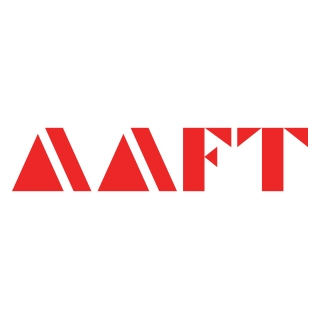How Music Classes Can Help You Achieve Your Musical Goals
This blog is all about how music classes play a significant role in life and how they can help unlock your potential in the music industry. Music is more than just a pleasant sound; it is a journey of self-discovery, expression, and profound skill development. Whether you’re a beginner aiming to learn the basics or a seasoned musician seeking to refine your talent, music classes offer a structured path to achieving your musical goals. This blog explores how music education can be a transformative experience, helping you unlock your potential and setting the stage for personal and professional growth.
1. Foundation Building
Every great musician starts somewhere, and music classes provide the crucial foundational knowledge you need. From reading music and understanding rhythmic patterns to mastering scales and chords, music education covers all the basics. This foundational knowledge is indispensable, as it supports all future musical endeavors, ensuring you have the skills needed to explore more complex and rewarding compositions.
For example:- Rohan, a young tabla player, begins his musical journey by attending tabla lessons at his local music school. Here, he learns to read taals (rhythmic patterns), understand basic taans (melodic patterns), and master fundamental scales and rhythms. These skills provide the groundwork for his future musical endeavors, whether he chooses to pursue classical Indian percussion or explore fusion music.
Read Also: Indian Classical Music Vs Western Music: A Comparative Guide
2. Technical Proficiency
Instruments demand not just passion but precision. Regular classes at a music school which focus on developing your technical abilities. Instructors with years of experience guide you through intricate techniques, from finger positioning to breath control, depending on your instrument of choice. This guidance is essential for anyone looking to master an instrument, as it helps prevent bad habits that could hinder progress.
For example:- Priya, a budding sitarist, attends weekly classes. Her instructor, a seasoned sitar maestro, guides her through proper hand positioning, plucking techniques, and tonal variations. With consistent practice and expert guidance, Priya develops a strong technical foundation, setting her up for success in mastering the sitar.
Do you want free career counseling?
Ignite Your Ambitions- Seize the Opportunity for a Free Career Counseling Session.
- 30+ Years in Education
- 250+ Faculties
- 30K+ Alumni Network
- 10th in World Ranking
- 1000+ Celebrity
- 120+ Countries Students Enrolled
Read Also: The Ultimate Guide: Comparing Instrumental & Vocal Music
3. Performance Opportunities
One of the significant advantages of enrolling in music classes is the opportunity to perform. Performance is a critical aspect of music education, offering students the chance to experience the stage, manage stage fright, and receive direct feedback from audiences and instructors. Schools like AAFT provide numerous recitals, ensemble performances, and even public concerts, which are invaluable for building confidence and stage presence.
For example:- Ananya, a classical vocalist, regularly participates in classical music recitals organized by her music school. These events provide her with invaluable stage experience, helping her overcome stage fright and refine her performance skills in front of a discerning audience. Through performing classical compositions and receiving feedback from gurus, Ananya gains confidence and hones her stage presence.

Read Also: Online Music Courses vs. Traditional Music Degrees
4. Exposure to Various Musical Styles
The world of music is vast and diverse. Music schools offer courses in a wide range of musical genres, from classical and jazz to rock and pop. This exposure is crucial for a well-rounded musical education, allowing students to experiment with different styles and find their unique voice. Understanding various musical forms also broadens a musician’s repertoire and enhances adaptability.
For example:- Arjun, a tabla player, attends a music school that offers courses in Hindustani classical, Carnatic music, folk music, and Bollywood music. By exploring different musical styles, Arjun discovers his preferences and learns to incorporate elements from each genre into his tabla playing. This exposure broadens his musical repertoire and enhances his adaptability as a percussionist.
5. Creative Expression
Music is an art form that relies heavily on creative expression. Music classes encourage you to channel your emotions and ideas into your music, fostering creativity that transcends musical boundaries. Instructors help you interpret music, encouraging personal expression in performance and composition. This creative liberty is vital for developing your unique style and can be deeply fulfilling personally.
For example:- Aisha, a Hindustani classical singer, attends music composition classes where she learns to express her emotions and ideas through her music. With guidance from her guru, she explores different ragas, talas, and improvisational techniques. Through creative expression, Aisha develops her unique musical style and finds fulfillment in expressing herself through classical compositions.
Do you want free career counseling?
Ignite Your Ambitions- Seize the Opportunity for a Free Career Counseling Session.6. Networking and Collaboration
Attending a music school places you in a community of like-minded individuals—peers who share your passion and can inspire and challenge you. Collaboration is often a part of music education, whether in ensemble pieces, band formations, or simply during class activities. Networking with other musicians can lead to exciting opportunities in and beyond the school environment.
For example:- Vikram, a flutist, forms a fusion band with fellow students he met at his music school. Together, they blend classical Indian ragas with contemporary Western music styles and experiment with new compositions. Through this collaboration, Vikram not only strengthens his musical skills but also builds meaningful connections with other musicians, opening doors to future opportunities in the diverse Indian music industry.
7. Professional Guidance
Perhaps one of the most significant benefits of music classes is access to professional guidance. Experienced instructors can offer insights that go beyond textbooks, sharing personal experiences and industry knowledge that can help you navigate your musical career. At AAFT School of Music, the faculty are not just teachers but mentors who strive to see their students succeed in the music industry.
For example:- Meera, an aspiring music composer, seeks mentorship from experienced instructors at her music school. They provide her with insights into Indian classical music theory, composition techniques, and industry trends in Bollywood and independent music. With their guidance, Meera gains a deeper understanding of the Indian music business and develops a roadmap for her future success as a composer.
Read Also: The Impact of Technology on the Music Industry
8. Access to Resources
Enrolling in a music school gives you access to resources that might be difficult to obtain on your own. This includes musical instruments, recording studios, libraries, and even production equipment. Such resources are invaluable for a comprehensive learning experience, allowing students to practice with professional-grade equipment and facilities.
For example:- Raj, a sound engineer, takes advantage of the recording studios available at his music school to produce his debut fusion album blending classical Indian and electronic music. He has access to professional-grade microphones, mixing consoles, and software, allowing him to record and produce his music to a high standard. Without the resources provided by his music school, Raj’s album production process would be much more challenging and costly.
Read Also: How Music & Piano Classes Keep Your Brain Sharp
Conclusion
Whether your goal is to become a professional performer, a music teacher, or simply to enjoy playing music at a higher level, music classes offer a structured and supportive environment to develop your skills. The AAFT School of Music stands ready to help you achieve your musical goals with expert instructors, a supportive community, and top-notch facilities. Are you ready to take your musical passion to the next level? Visit the AAFT School of Music today to find out how our programs can help you achieve your dreams. Enroll now and start your journey towards musical excellence!
This content is designed to be informative and engaging, with a clear call to action that encourages readers to explore further education with the AAFT School of Music, promoting enrollment and deeper engagement with the school’s offerings.

AAFT has been providing the world with limitless creativity and expression since 1993! Through a dynamic and industry-driven curriculum, AAFT provides engaging and captivating articles to persuasive blogs and empowers its readers to explore diverse avenues of creative media education-related content.







